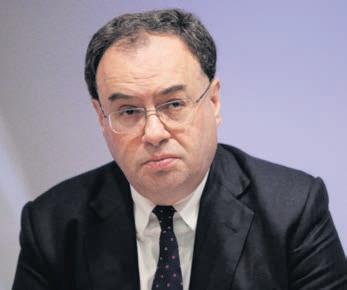
1 minute read
UK now the only rich country where inflation is still rising
by cityam
JACK BARNETT
BRITAIN is now the only rich country where inflation is rising, signalling the Bank of England’s series of interest rate rises have been less effective than its peers, new data shows.
Inflation across the G7 nations fell to 4.6 per cent in May, down from 5.4 per cent in April, according to the Organisation for Economic Cooperation and Development (OECD).
In the UK, it said the rate of price increases jumped to 7.9 per cent in May from 7.8 per cent, with the UK being the only country in the bucket of rich countries to notch an increase.
Annualised inflation fell in the US, Canada, France, Germany and Japan in May, the OECD said.
There are signs that Britain is being gripped by a tough inflation problem. Office for National Statistic (ONS) numbers last month revealed core inflation – which strips off volatile food and energy prices – climbed to over seven per cent. Its highest level in over 30 years.
Food costs have climbed 18 per cent.
Services prices are also up more than seven per cent over the last year, suggesting the initial price burst driven by the energy shock is now generating home-grown inflation.
The ONS calculated headline inflation remained unchanged at 8.7 per cent in May.
Analysts have blamed historically high wage growth of over seven per cent for fuelling price increases. Others have slammed businesses for profiteering.
Bank governor Andrew Bailey and the rest of the Monetary Policy Committee have jacked up borrowing costs to five per cent.

Last month, they returned to larger rate increases, sticking the Bank’s base rate up 50 basis points. Financial markets think another such jump is coming in August and that borrowing costs will peak at 6.25 per cent.
That would be the steepest level in over 20 years.
There are mounting risks that Prime Minister Rishi Sunak will miss his target of halving inflation to just over five per cent at the end of 2023.
Economists reckon the effects of the Bank’s rate increases now take longer to feed through to the economy due to most homeowners taking out fixed mortgages not floating contracts.
Millions of mortgagors are poised to roll on to new deals with much higher rates by the start of 2024, which experts think will help bring down inflation by eroding their spending power.
Financial data company Moneyfacts said the average rate of the five-year fixed mortgage topped six per cent for the first time this year.







